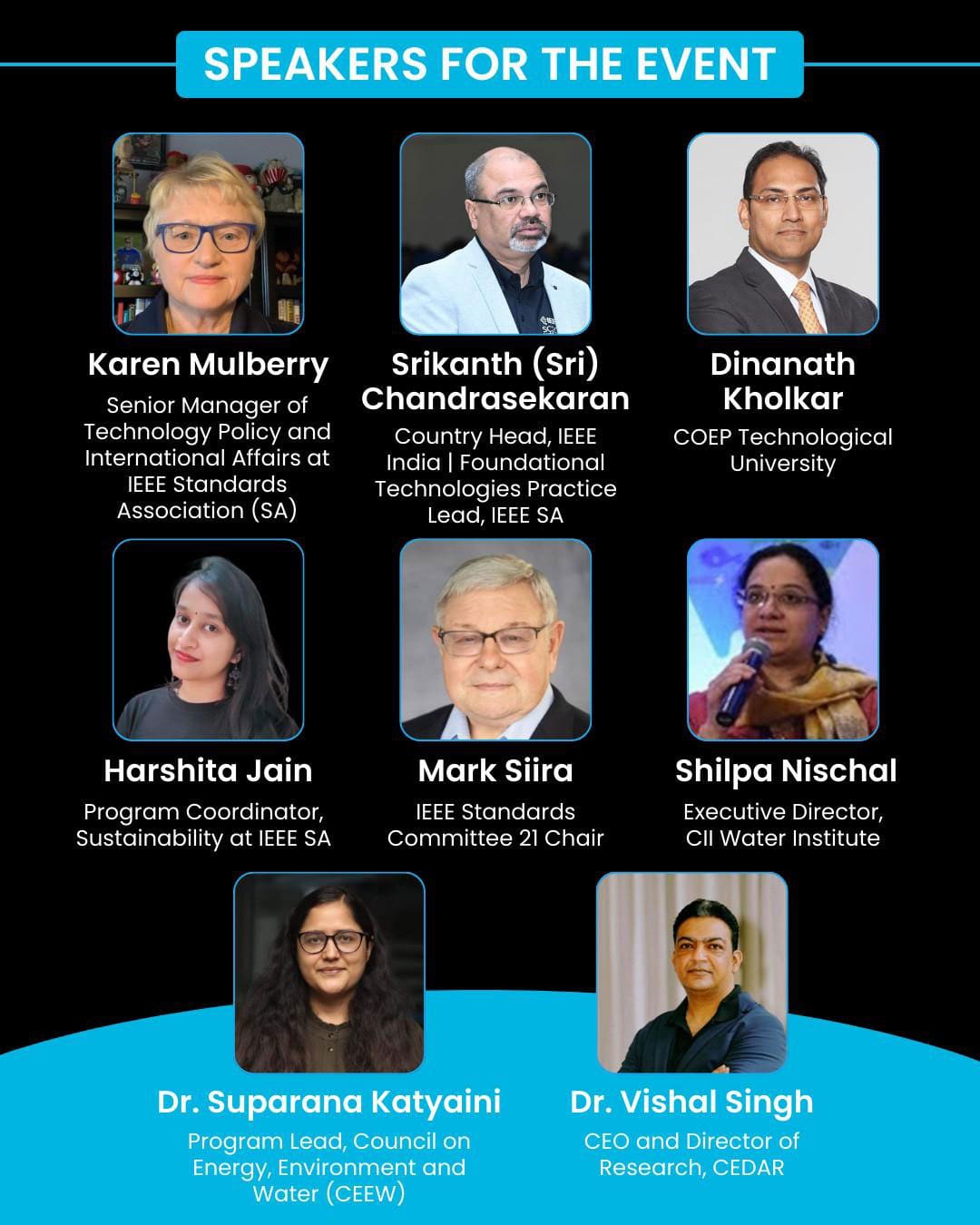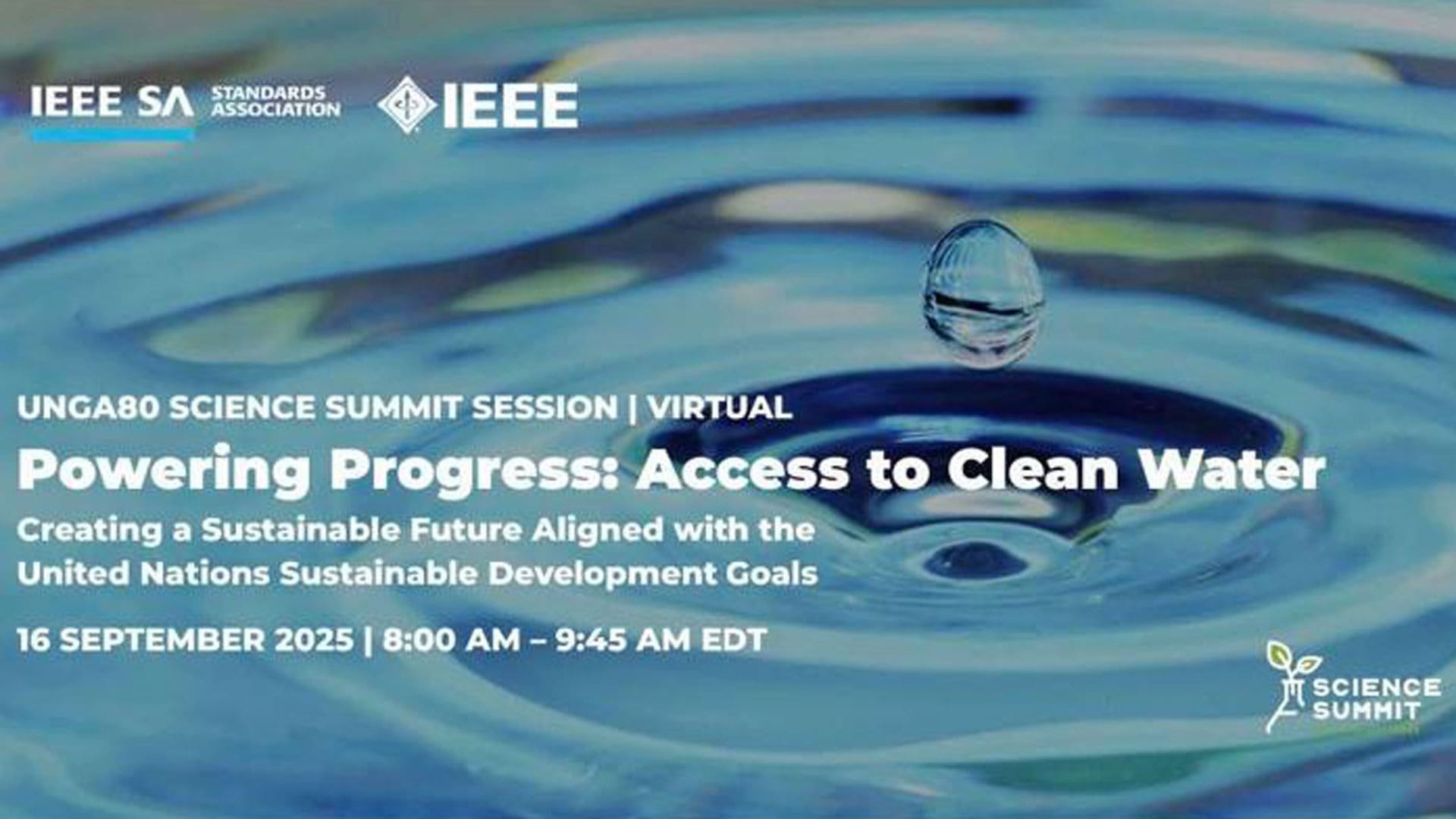IEEE organized a session at the 80th Session of the UN General Assembly (UNGA 80) Science Summit on “Powering Progress: Access to Clean Water – Creating a Sustainable Future Aligned with the SDGs” (16 September 2025), which explored the urgent challenge of clean water access in rural communities.
Panelists used a real-world project in the Himalayas to examine how deforestation and climate change have impacted water resources and how technology can drive measurable change. Using a science-based, interdisciplinary approach to water access combining engineering, environmental science, data, and community-based practices, experts discussed the impacts of climate change on rural communities in the Himalayas.
The interactive workshop explored the urgent global challenge of clean water access in rural communities. Drawing on interdisciplinary expertise in environmental science, engineering, public health, and digital innovation, the session provided participants with an understanding of the systemic barriers to clean water, particularly the climate change impact on the rural communities in the Himalayas. The discussion highlighted the interdependency between energy and water, and the opportunities for new approaches addressing water use and electric power generation that address gaps to sustainable resources.
Panelists underlined that clean water access is vital for the health, well-being, and economic development of rural communities in developing nations. However, challenges like limited infrastructure, resource constraints, and energy scarcity hinder progress. The disparity between clean water access and economic development in rural communities is particularly acute in rural areas where infrastructure is limited, resources are scarce, and climatic challenges are exacerbating water insecurity.
Technology can accelerate progress, but only if solutions are interoperable, scalable and sustainable. Using a clean water project in the Himalayas as an example of what can be accomplished through a multidiscipline approach, the workshop explored how the impact of deforestation and development have adversely affected the springs in Himalayan rural communities.
Srikanth (Sri) Chandrasekaran moderated the workshop with:
- Harshita Jain providing insight into the issues of rural clean water access
- Dr. Vishal Singh provided examples of the Himalayan Water Paradox; how abundant water resources have become scarce over time
- Dr. Suparana Katyaini spoke on how India’s water policies are addressing clean water for India’s Food, Land for a sustainable future
- Shilpa Nischal looked at data gathered using an evaluation tool on to look at the impact of climate change and water source sustainability
- Dinanath Kholkar provided examples of IEEE standardization efforts to support the affordable agriculture program and presented the Jal Mulya research project led by the Pune International Centre (PIC), which focused on promoting the sustainable and efficient use of water through a cost-price approach
- Mark Siira provided an update on a new IEEE Industry Connections program on the Energy Water Nexus that is working to better understand the demands and needs for water and energy in order to initiate a standardization effort
- Karen Mulberry provided closing remarks that captured the key points discussed

The workshop concluded by noting that there is still much to be accomplished to address access to clean water. If you are interested in addressing access to clean water and the nexus between water, energy, and standards, please contact Karen Mulberry for more information.
To see the full recording of the UN Science Summit, click here.








